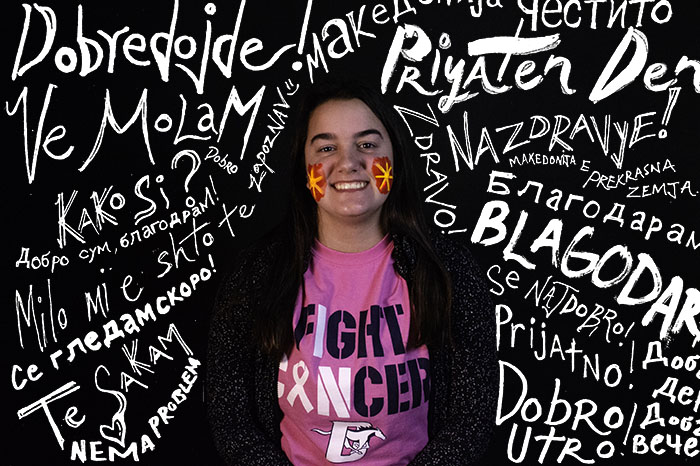Struggles of being multilingual
January 28, 2020
“I think that speaking another language is important because it allows you to connect with more people around the world,” Karanakove said.
At DGS many students come from different cultural backgrounds and have to adapt to expectations while conforming to an American society. Part of adapting includes learning English. Learning a second language is challenging for individuals because they experience two different cultures at once.
Sophomore Yamil Ortiz moved from Puerto Rico to the United States in his freshman year. He grew up speaking Spanish and arrived at DGS unable to speak a lick of English. Ortiz explained how his personality was negatively affected upon arrival at an American school.
“Freshman year, I felt attacked because I received disrespect from peers since I did not know how to explain myself and speak with them. In Puerto Rico I was very social, but when I came here, I closed myself off so that I wouldn’t make mistakes and have people laugh at me,” Ortiz said.
Senior Andre Beikircher learned Czech as his first language along with German. He notices the cultural differences between his home and school life in comparison to those peers. Beikircher noted the contrast between how he was raised versus his American peers.
“When I was growing up, I didn’t feel I could relate to most people at my school, which made me feel different. I think other kids around me didn’t understand our cultural differences. I noticed the contrast between peers who lived in identical suburban houses and how they spoke only English at home,” Beikircher said.
Students who speak a different language at home often have to switch languages when at school. This is difficult due to the constant change in communication that many American students do not have to experience. Beikircher disclosed his perspective on how he communicates at school versus at home.
“In my house we speak more Czech than English. When I get to school, I switch to speaking English, which is a major contrast. It can be challenging because it is a back and forth switch between languages,” Beikircher said.
Ortiz revealed the common stereotype he faces coming from his Puerto Rican background: he explained people often assume his ethnicity because he speaks Spanish. Ortiz noted it is important that people avoid forming assumptions before they know the facts.
“I think this is not only my problem, but other Puerto Ricans have this problem. I think Americans think I am Mexican just because I speak Spanish, but that is not true. It is mean when you assume someone’s ethnicity without getting to know them,” Ortiz said.
Students coming from a different culture are pressured to fit in with their peers around them and quickly adapt to a different lifestyle. However, Sejko noted that students should not have to change themselves to conform to the stereotypical vision of the ideal American.
